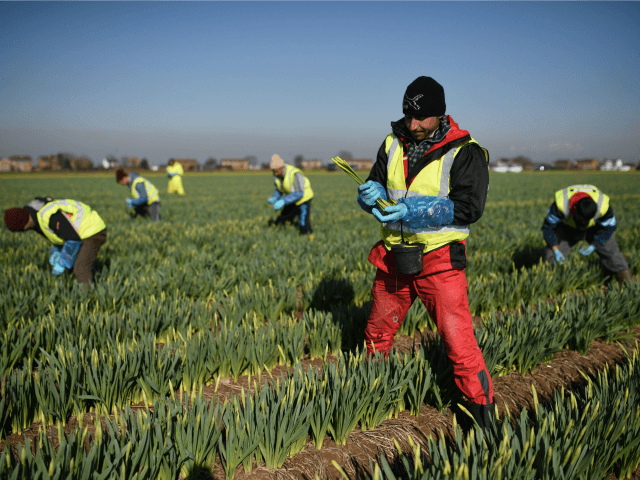Post-Brexit Britain will open visa routes for low-skilled migrants, according to immigration plans set to be unveiled this week, despite the government having been urged not to do so by its own expert policy body.
Home Secretary Sajid Javid will also reportedly announce an end to the current cap on high-skilled migrants when he lays out plans for a new immigration system “based on skills, not where people come from” to mark the United Kingdom’s exit from Free Movement migration rules within the European Union.
According to the Daily Mail, low-skilled workers who have no history of immigration abuse will be handed short-term visas which expire after a year and bar holders from returning for up to 12 months under the new regime.
This would go directly against proposals outlined in the Migration Advisory Committee’s (MAC) long-awaited report in September, which — to the alarm of business interests and corporate lobbyists who have claimed that Britain would “wither away” without a limitless supply of cheap foreign labour — said there was no need to create routes for low-skilled migrants.
Explaining why employers’ concerns “about being faced with an alleged cliff-edge in their supply of labour” after an end to Free Movement have been completely misplaced, the MAC suggested only the “possible exception of a seasonal agricultural workers scheme” in its paper, with a caveat that this should come with the requirement that “employers pay a higher minimum wage in return for the privileged access to labour”.
Giving evidence to the Commons Home Affairs Select Committee on the issue in October, MAC chairman Professor Alan Manning told MPs how, after a decade of low-skilled mass migration from Europe, all the figures showed the phenomenon had provided “no clear benefits” to British citizens.
Responding to shocked left-wing committee members demanding he outline all of mass migration’s plus sides, the LSE professor of labour economics said it “hasn’t really had positive effects and has had negative effects”, explaining that the overall outcome of adding more than a million low-paid migrants has been to shape Britain into a “lower wage, lower productivity kind of economy”.
Despite Manning’s compelling testimony and report pointing out that low-skilled migration has been a drain on public finances due to the fact “most of these workers are earning below a break-even salary at which taxes exceed benefits and public services that they consume”, proposals to restrict the supply have been “at the centre of a bitter Cabinet row”, according to The Sun.
The newspaper was reportedly told that Prime Minister Theresa May was in a “minority of one” in wanting to end the supply of low-skilled workers, while ministers including business secretary Greg Clark and Mr Javid had been “lobbying for looser restrictions”.
Figures earlier this month revealed the average salary of hospitality roles in Britain has surged 38 per cent in a year thanks to the Brexit-inspired fall in EU migration seen over the past year.
Lee Biggins, founder and managing director of CV-Library, commented that the “staggering increase” had been “a direct result” of bosses having to offer better conditions to attract workers from a smaller labour pool.
He told The Caterer: “Ongoing economic uncertainty, coupled with the growing skills gap, is making it difficult to entice candidates away from their current positions. As such, it’s clear from the data that organisations in the hospitality sector are pulling out all the stops to secure the top talent.”

COMMENTS
Please let us know if you're having issues with commenting.